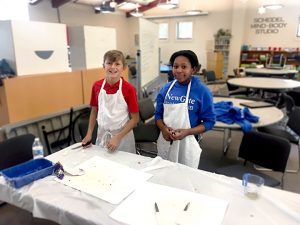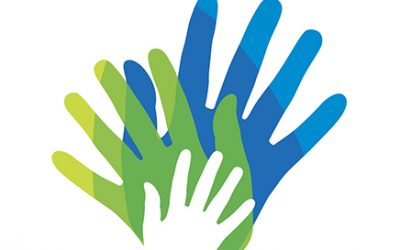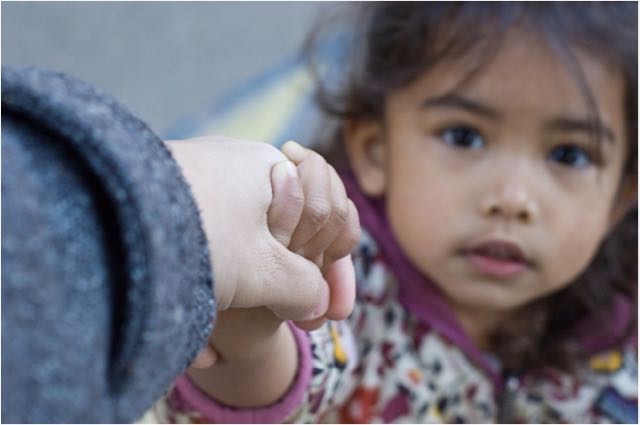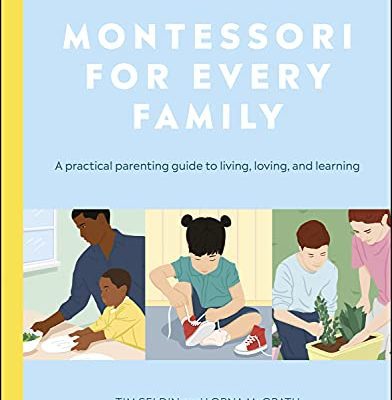 “The chief symptom of adolescence is a state of expectation, a tendency towards creative work and a need for the strengthening of self-confidence.” —Maria Montessori
“The chief symptom of adolescence is a state of expectation, a tendency towards creative work and a need for the strengthening of self-confidence.” —Maria Montessori
What motivates adolescents to do their best work? Most would agree that programs that support student interests and provide high challenges and skills, thinking combined with acting, freedom combined with discipline, and positive motivation engage and invite the adolescent to do their best work. Maria Montessori envisioned an adolescent program that would support the development of both the adolescent’s psychological and economic independence. It has also been determined that adolescent students who enjoy what they do and link the importance of what they do to a bright future have a commitment to the work. Interestingly, humor and a sense of joy enhance this commitment to work during adolescence. Other powerful characteristics of a Montessori secondary program that contribute positively to the development of the adolescent student are programs that nurture the adolescent community as a whole; in other words, programs that take seriously the deep and important communal life of the teenager.
Culinary Nights, a culminating event that happens twice a year at the Montessori Foundation’s Lab School, NewGate Montessori IB School, is one such program that highlights the best of programs for adolescents. It is a night of celebration where the students who participate in culinary classes get to show off their skills to the school community, family members, and friends. The NewGate secondary program encompasses lessons and experiences to develop life skills, including cooking, social skills, community events, and other practical life experiences. This particular evening event allows students to demonstrate their capabilities in cooking, plating, serving, setting tables, and wine pairing a 5-course culinary experience.
In preparation for this event, NewGate secondary students take food preparation classes with Mr. Greg Desvenain, a parent chef at the school, who specializes in French cuisine and French and Italian wines. The course, which is part of the school’s curriculum, teaches basic culinary skills including how to dice an onion, how to use a food blender, even how to make a scrambled egg. Students learn how to prepare meals after investigating and researching balanced diets and a variety of different types of recipes from soups and main courses to desserts.
Mr. Greg teaches all aspects of food preparation and service. He gives lessons on how to hold plates, which side to serve and remove plates, and how to talk politely to guests. Using the commercial grade kitchen on the NewGate secondary campus, students cook various meals and learn how to plate food with a professional flair, arranging each dish in ways that stimulate the palate and excite the diner. Understanding how to tastefully decorate and garnish using herbs, flowers, and sauces are also part of the curriculum. Mr. Greg also gives students who have a personal interest in the culinary arts opportunities to extend their interests by offering an after-school club experience.
In the weeks prior to Culinary Nights, students practice cooking each dish separately. They also practice plating and serving each dish to each other. A theme is picked and the menu is decided upon knowing that the event is the culminating project for the course. The theme tends to have roots in French cuisine but also uses locally grown products. The menu for this year’s event indulged attendees with polenta cakes, gazpacho, fish, stuffed vegetables, and apple crumb cake á la mode.
On the day of the event, in early afternoon, students assemble in the kitchen and begin to cook. Cooking continues throughout the afternoon until guests arrive. Students also arrange and set tables, print menus, organize themselves to receive guests, and have the wine pairing information ready for each table. Conversations in the form of peer-mentoring for each task elevate the excitement of the evening. This culminating event is weeks in the making and gives NewGate students opportunities to market, manage, collaborate, partner, and strengthen communal relationships.
Maria Montessori tells us that it is during this period of adolescence where interest in the construction and function of society forms in the individual consciousness. The culinary arts program at NewGate School is but one program highlighting the best of adolescent experiences that stay true to Montessori principles and give adolescent students opportunities to develop essential skills for the future. ′
Tomorrow’s Child / April 2019 / Pg 27






